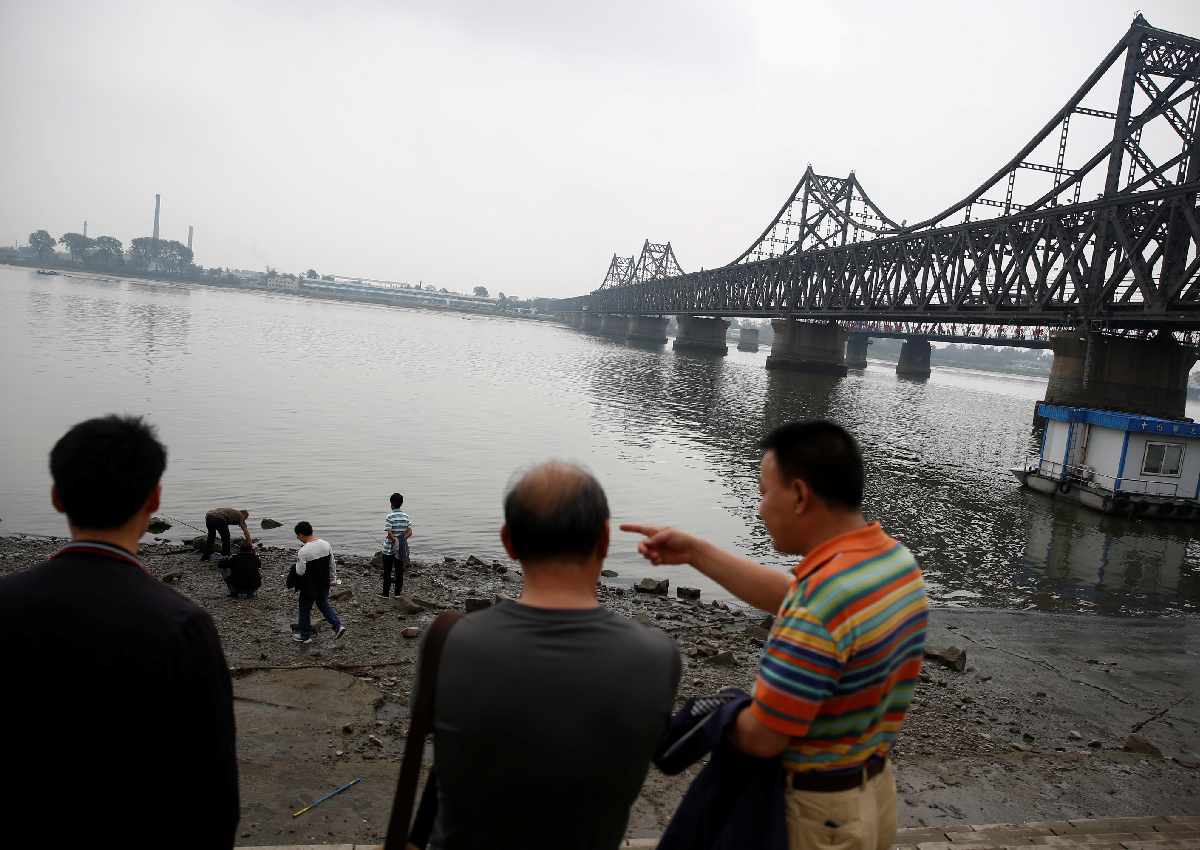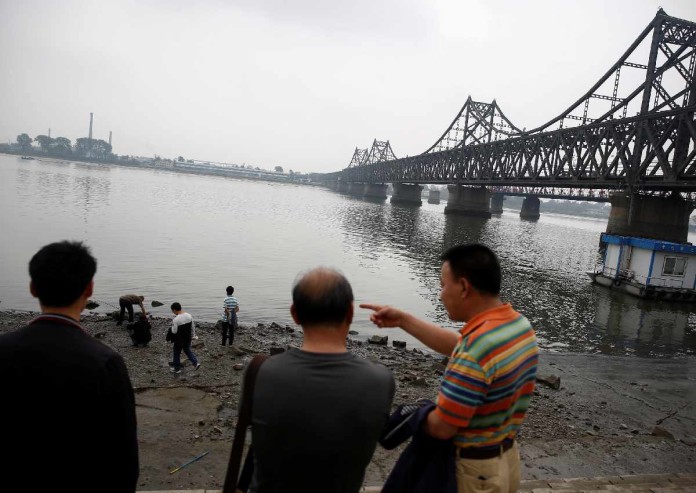DANDONG, China – Tourists and the odd train made their way across China’s main border point with North Korea on Saturday, with residents largely brushing off Pyongyang’s fifth and largest nuclear test and little sign of stepped up security or scrutiny.
China, Pyongyang’s main diplomatic ally, is key in any effort to rein in North Korea’s nuclear programme. It has been infuriated by repeated nuclear and missile tests and has signed up to increasingly tough United Nations sanctions.
While China says it is fully committed to enforcing the sanctions, it has also made clear it does not think ordinary North Koreans should be made to suffer, and has long worried that totally cutting off Pyongyang would lead to the country’s collapse, sending waves of refugees its way.
China’s border city of Dandong, through which as much as 80 percent of the bilateral trade is conducted, would be the most obvious place for Beijing to make its displeasure with North Korea felt by slowing the flow of goods, even temporarily.
Residents said there had been no such reaction, even though the main bridge connecting the two sides had been closed on and off for repairs in the past few days, but not totally shut.
One Dandong businessman, who asked to be identified by his family name of Lu, said for him North Korea held no fascination – it was simply a place to trade with, though he did admit to being nervous about possible radiation. “There’s still huge demand for ordinary goods, like food and clothes,” he said. “There was a train this morning, one yesterday, one the day before. Things haven’t stopped.” At the main border post, trucks lined up to take goods into North Korea on Monday, the port not being opened for routine trade on weekends. “It’s business as usual, it’s no different from any other day,” said a 24-year-old woman who exports clothes to North Korea, declining to give her name.
Tourists had to walk across though, because of the repairs.
Shops around the border post and train station are packed with goods obviously aimed at the North Korean market like machinery, with Korean script featured prominently.
Some residents said they hadn’t even heard of the latest test, which has not received top billing in Chinese state media. “Trade has been increasing each year between North Korea and China. North Koreans rely on us for generators, natural resources, food, all sorts of things,” said Lu Shilei, 34, who runs tours to North Korea. “I don’t think the sanctions have had a huge impact, they’re only limited to a few products connected to the nuclear programme. There’s still lots of trade either way for common goods that ordinary people use.” China’s Foreign Ministry did not immediately respond to a request for comment on whether border checks had been stepped up.
BRIGHT LIGHTS, NO LIGHTS
At night, Dandong’s bright lights stand in marked contrast to the darkness that looms from the North Korean side of the Yalu River which separates them, drawing a clear line between a booming China and impoverished North Korea.
Dandong has deep emotional ties to North Korea due to the 1950-53 Korean War, in which Mao Zedong’s forces fought alongside North Korea against a U.S.-lead UN coalition.
The “Broken Bridge”, bombed in half by U.S. aircraft in that war, is a major tourist draw, sitting in the centre of town next to the “Friendship Bridge” over which much of today’s bilateral trade is conducted. There is also a large war museum.
Trade between Beijing and Pyongyang has always been opaque, with experts believing much of the trade and aid China sends North Korea is off books and so difficult to track, making a true assessment of commercial ties close to impossible.
Officially, bilateral trade in the first seven months of the year fell 5.6 percent year-on-year, with China’s imports falling a larger 8.7 percent.
Business between the two is dwarfed by trade between China and capitalist South Korea, which was worth 908 billion yuan ($135.97 billion) in the January to July period, compared to just 17.7 billion yuan between China and North Korea.
Wang Quan, general manager of a trading firm that sells trucks, cars and buses to North Korea, said overall trade had suffered slightly because of sanctions, and also China’s own slowing economy, but overall he saw no major impact. “It’s just business as usual each time North Korea conducts a nuclear test. Nothing really changes for a small business like ours.” On Friday, China’s Foreign Ministry would not be drawn on whether China would support further sanctions, saying only that it has fulfilled previous U.N. resolutions and would continue to take a responsible and constructive attitude towards talks at the Security Council.
China is also angry at Washington and Seoul for a decision to place an advanced anti-missile system in South Korea, saying it threatens China’s security and won’t help bring North Korea back to the negotiating table.
Cai Jian, an expert on North Korea at Shanghai’s Fudan University, said China had always been very careful in having targeted sanctions, aimed directly at the nuclear and missile programmes. “We don’t put sanctions on the ordinary people, as that would affect the stability of the whole country,” Cai said. “I don’t think there will be any extra measures.” ($1 = 6.6778 Chinese yuan renminbi)






